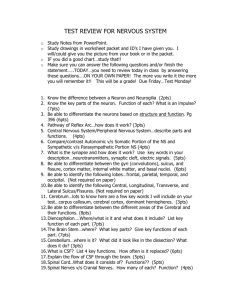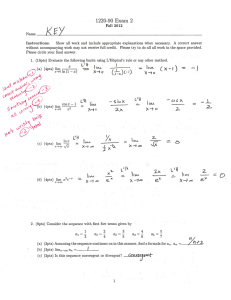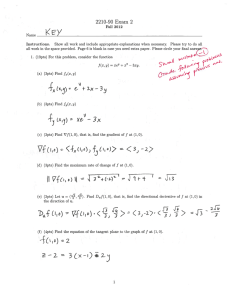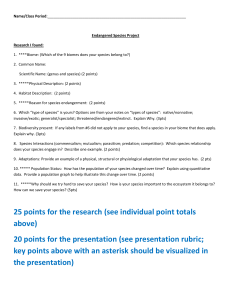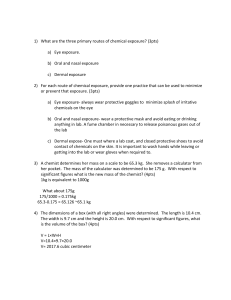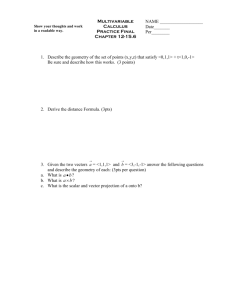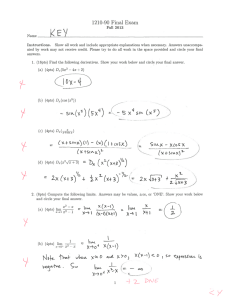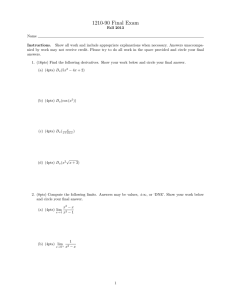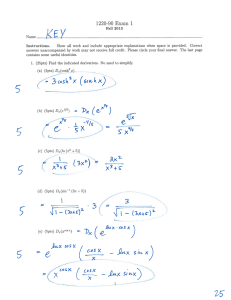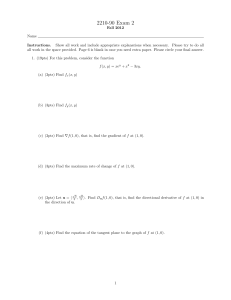Chemistry 165 * Determination of Molar Mass by
advertisement
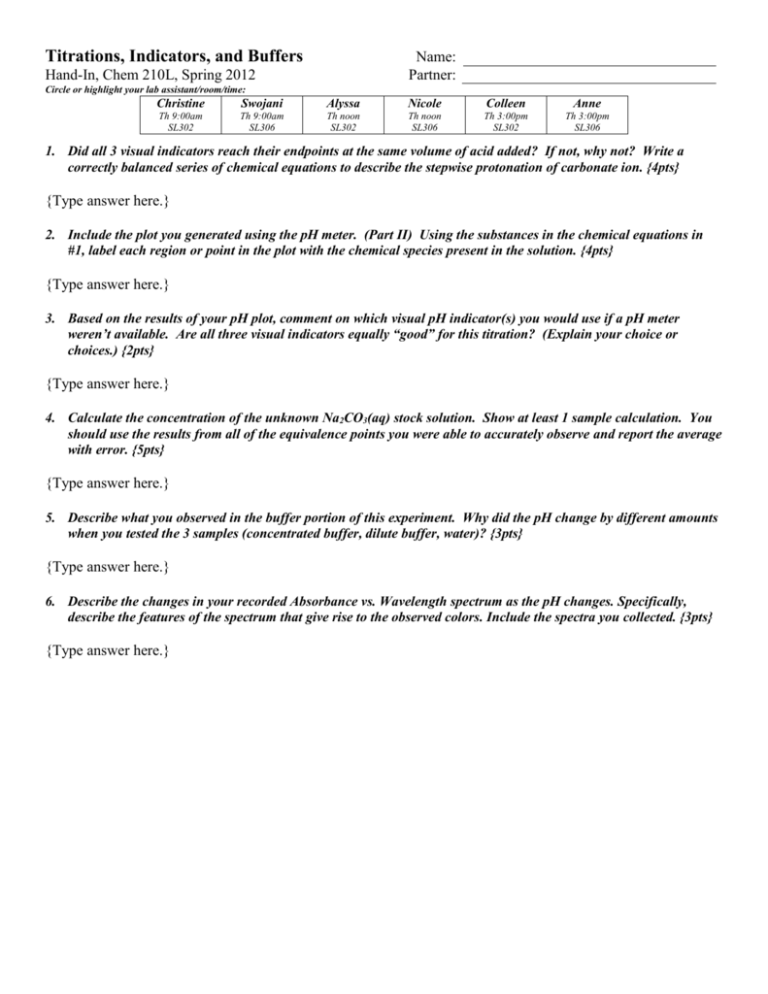
Titrations, Indicators, and Buffers
Name:
Partner:
Hand-In, Chem 210L, Spring 2012
Circle or highlight your lab assistant/room/time:
Christine
Swojani
Alyssa
Nicole
Colleen
Anne
Th 9:00am
SL302
Th 9:00am
SL306
Th noon
SL302
Th noon
SL306
Th 3:00pm
SL302
Th 3:00pm
SL306
1. Did all 3 visual indicators reach their endpoints at the same volume of acid added? If not, why not? Write a
correctly balanced series of chemical equations to describe the stepwise protonation of carbonate ion. {4pts}
{Type answer here.}
2. Include the plot you generated using the pH meter. (Part II) Using the substances in the chemical equations in
#1, label each region or point in the plot with the chemical species present in the solution. {4pts}
{Type answer here.}
3. Based on the results of your pH plot, comment on which visual pH indicator(s) you would use if a pH meter
weren’t available. Are all three visual indicators equally “good” for this titration? (Explain your choice or
choices.) {2pts}
{Type answer here.}
4. Calculate the concentration of the unknown Na2CO3(aq) stock solution. Show at least 1 sample calculation. You
should use the results from all of the equivalence points you were able to accurately observe and report the average
with error. {5pts}
{Type answer here.}
5. Describe what you observed in the buffer portion of this experiment. Why did the pH change by different amounts
when you tested the 3 samples (concentrated buffer, dilute buffer, water)? {3pts}
{Type answer here.}
6. Describe the changes in your recorded Absorbance vs. Wavelength spectrum as the pH changes. Specifically,
describe the features of the spectrum that give rise to the observed colors. Include the spectra you collected. {3pts}
{Type answer here.}
